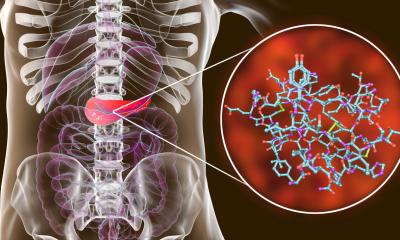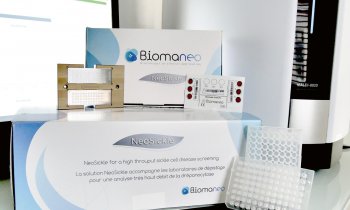Boldly tackling catering and hygiene issues
Report: Brenda Marsh
Although food for in-patients can be integral to healing, the standard of catering can be disappointingly low in some hospitals. In addition, sometimes even the help needed by those patients unable to eat or drink unaided can be overlooked. In addition, the problems of poor hospital hygiene can, at worst, result in deaths as well as legal issues for management. These two difficult areas are now being firmly addressed in Scotland.

Catering - A recently published review of the food supplied to patients in Scottish hospitals has highlighted good performances by various healthcare boards and also identified improvements to be made.
The next step of the plan will be the launch of the new Nutrition Database, which will enable the country’s NHS Boards to analyse recipes to ensure meals are nutritionally balanced and match individual patient’s needs. Using the database, the Boards will be able to record data and information and produce reports on their patients’ catering recipes, so that what they provide is nutritionally balanced and healthy. Additionally, recipes can be shared across Scotland and special requirements, e.g. textured food, supplied.
The Nutrition Database and compliance reports are two elements of a comprehensive programme for improving nutritional care in hospitals. Established in 2008, and backed by £1.5 million to support the implementation of the NHS Quality Improvement Scotland Clinical Standards for Food, Fluid and Nutrition in Hospitals, the programme includes:
• The publication of Food in Hospitals - A National Catering and Nutrition Specification for Food and Fluid in Scottish Hospitals (2008)
• The publication of a Practice Development Programme and Toolkit ( 2008)
• Development of a web-based Educational Framework
• Funding of Nutrition Champions in each NHS Board
• Increased emphasis on the key role played by nurses in ensuring vulnerable patients who may need assistance with eating a drinking are given the care and support to improve and maintain their nutrition where appropriate.
For the last six months in 2009, the National Catering and Nutritional Services Specification: Half Yearly Compliance Report was used to assess the NHS Boards' performances against required standards. These include the planning of healthy and nutritionally balanced menus and specifying the number of portions, and provision of a good range of food types; providing modified diets to assist with particular conditions; listening to patients, carers and staff and, particularly important in our increasingly mixed society, flexibility regarding people's cultural, religious or personal preferences.
Nicola Sturgeon, Cabinet Secretary for Health and Wellbeing, said that this report has not only shown, for the first time, what nutritional ratings have been achieved by the NHS, but also has provided a standard against which to measure progress in this sector across Scotland. ‘By this time next year I expect all health boards to achieve over 90% for every one of the food standards. The new database is a fantastic start to improving hospital food and will allow boards to nutritionally analyse their menus and provide patients with healthy meals tailored to their individual recovery needs.’
Hygiene: Tough measures for a tough task
The Healthcare Environment Inspectorate (HEI) set up in spring 2009 to undertake visits to each acute hospital in country’s National Health Service (NHSS) at least once every three years, aims to reduce the healthcare associated infection (HAI) risk to patients through rigorous announced as well as unannounced inspections.
Each visit is led by an experienced inspector and supported by a small team, which also includes a volunteer inspector to ensure members of the public are involved in the Inspectorate’s work.
Former nurse, Susan Brimelow became chief inspector of the organisation just over six months ago. Since her appointment, 16 hospitals have received visits. She recently expressed surprise at the state of some of the hospitals. In some cases, standards of cleanliness were found to be particularly poor in the cleaning of equipment, commodes, underneath beds and in dusting. In terms of hospital maintenance, ventilators were found to be clogged with dust, and items not repaired. Regular infection control training was absent, and manuals missing from wards; additionally, in some cases staff only had out-of-date versions.
The inspectors also found some NHSS managers were very resistant to the strong measures recommended to tackle problems, in this ‘unprecedented scrutiny of the health service’. Some managers even attempted to influence the content of the inspection reports on their hospitals.
The hospitals involved are already raising hygiene standards, the NHSS pointed out.
Patients have also been urged to contact the HEI to report any observed problems in any hospital or department.
14.05.2010






